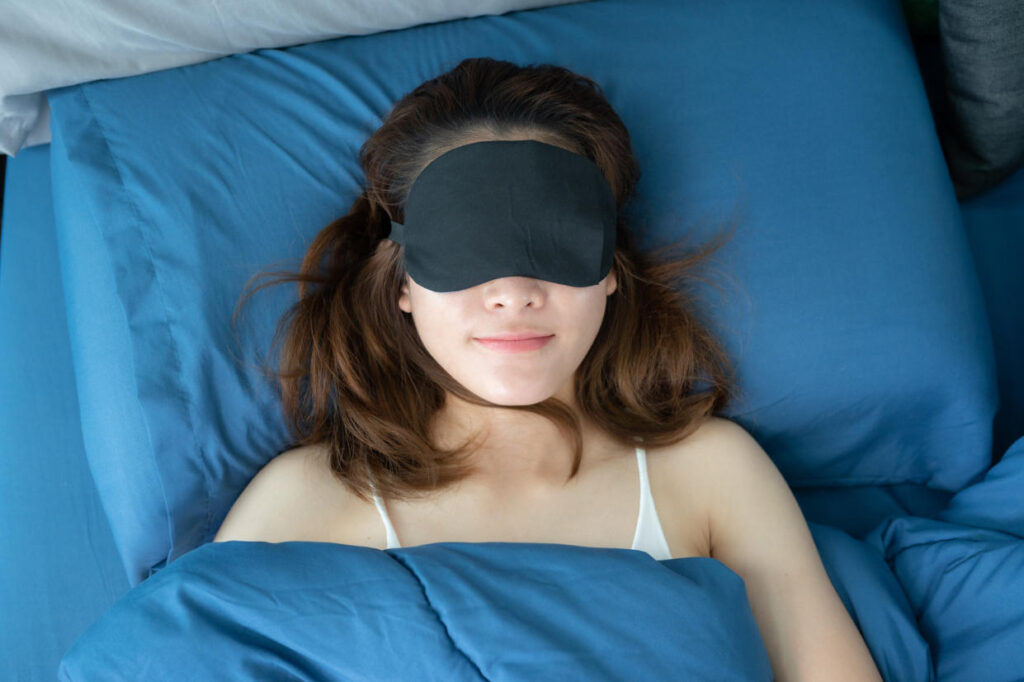
Ready for Answers? How the Right Sleep Study Machine Reveals Your Nightly Habits
The Importance of Sleep Studies
Sleep is an essential component of overall health and well-being, yet many individuals struggle to achieve the quality rest their bodies require. Sleep studies, also known as polysomnography, are invaluable tools that help diagnose sleep disorders and understand nightly habits. These studies provide insights into various aspects of sleep, including duration, quality, and disturbances.
With the rise of sleep-related issues, such as insomnia and sleep apnoea, the demand for effective sleep study machines has increased. These devices not only track sleep patterns but also offer a comprehensive view of an individual’s nightly behaviours. Understanding these behaviours can lead to tailored solutions that enhance sleep quality and, consequently, overall health. Moreover, the implications of poor sleep extend beyond mere fatigue; they can affect cognitive function, emotional stability, and even physical health, making the pursuit of restful sleep a critical aspect of modern living.
What is a Sleep Study Machine?
A sleep study machine is a device designed to monitor and record various physiological parameters during sleep. These parameters typically include brain activity, eye movements, heart rate, and breathing patterns. By collecting this data, healthcare professionals can gain insights into a person’s sleep architecture and identify potential sleep disorders.
Understanding nightly habits through the use of a sleep study machine can be a transformative experience for individuals struggling with sleep issues. By identifying underlying disorders and gaining insights into sleep patterns, individuals can take proactive steps towards improving their sleep quality.
Modern sleep study machines have evolved significantly, incorporating advanced technology that allows for more accurate and comprehensive data collection. Many devices are now portable and user-friendly, making them accessible for home use, which is particularly beneficial for those who may feel uncomfortable in a sleep lab environment. The convenience of at-home testing can also encourage more individuals to seek help for their sleep issues, ultimately leading to better health outcomes. Furthermore, the integration of smartphone applications with these devices enables users to track their sleep data in real-time, fostering a greater awareness of their sleep habits and encouraging proactive changes.

Types of Sleep Study Machines
There are several types of sleep study machines, each designed for specific purposes. The most common types include:
- Polysomnography Machines: These are the gold standard for sleep studies, capturing a wide range of data, including EEG (electroencephalogram), EOG (electrooculogram), and EMG (electromyogram) readings.
- Home Sleep Apnoea Testing Devices: These are simplified machines that primarily focus on monitoring breathing patterns and oxygen levels during sleep.
- Wearable Sleep Trackers: These devices, often worn on the wrist, track sleep duration and quality using accelerometers and heart rate sensors.
Each of these devices serves a unique purpose, catering to different needs and preferences. For instance, polysomnography machines are typically used in clinical settings for comprehensive evaluations, while home sleep apnoea testing devices provide a more convenient option for individuals suspected of having sleep apnoea. Wearable sleep trackers, on the other hand, appeal to those who wish to monitor their sleep patterns casually and integrate this information into their daily health routines. As technology continues to advance, we can expect even more innovative solutions to emerge, further enhancing our understanding of sleep and its critical role in our lives.
Read more at: Tired of Restless Nights Book a Sleep Study Adelaide Locals Trust
How Sleep Study Machines Work
Understanding how sleep study machines function is crucial for appreciating their role in diagnosing sleep disorders. Most machines operate by collecting data through sensors placed on various parts of the body.
During a polysomnography study, electrodes are attached to the scalp, face, and limbs to monitor brain waves, muscle activity, and eye movements. Additionally, sensors are placed around the chest and abdomen to measure breathing patterns and heart rate. This data is then transmitted to a computer for analysis. Read more about sensors on https://web.uri.edu/engineering/research/sensors-and-instrumentation/
Data Collection and Analysis
Once the data is collected, it is analysed to determine the various stages of sleep, including light sleep, deep sleep, and REM (rapid eye movement) sleep. Each stage plays a vital role in physical and mental health, and disruptions can indicate underlying issues.
Healthcare professionals review the results to identify patterns and anomalies, such as sleep apnoea, periodic limb movement disorder, or insomnia. This analysis is crucial for developing an effective treatment plan tailored to the individual’s specific needs.
Interpreting Sleep Study Results
Interpreting the results of a sleep study can be complex, but understanding the basics can empower individuals to take control of their sleep health. Key metrics include:
- Sleep Latency: The time it takes to fall asleep. Prolonged sleep latency may indicate insomnia.
- Sleep Efficiency: The ratio of time spent asleep to time spent in bed. Low sleep efficiency can signify fragmented sleep.
- Apnoea-Hypopnoea Index (AHI): A measure of the severity of sleep apnoea, calculated by the number of apnoeas and hypopnoeas per hour of sleep.
Benefits of Using a Sleep Study Machine
Utilising a sleep study machine offers numerous benefits for individuals seeking to improve their sleep quality. By gaining insights into nightly habits, individuals can make informed decisions regarding their sleep health.
One of the primary advantages is the ability to identify specific sleep disorders, which can lead to targeted treatments. For instance, if a sleep study reveals frequent apnoeic events, a healthcare provider may recommend a CPAP (continuous positive airway pressure) machine to assist with breathing during sleep.
Personalised Treatment Plans
Once a sleep disorder is diagnosed, healthcare professionals can develop personalised treatment plans. These plans may include lifestyle modifications, cognitive behavioural therapy for insomnia (CBT-I), or the use of medical devices. The tailored approach ensures that individuals receive the most effective interventions for their unique situations. To read more about interventions click here.
Moreover, understanding one’s sleep patterns can motivate individuals to adopt healthier sleep habits. For example, if a person learns that they frequently wake up during the night, they may choose to establish a more consistent sleep schedule or create a calming bedtime routine.
Improved Overall Health
Quality sleep is linked to numerous health benefits, including improved cognitive function, emotional well-being, and physical health. By addressing sleep issues through the use of a sleep study machine, individuals can enhance their overall quality of life.
Research has shown that individuals who achieve restorative sleep are less likely to experience chronic conditions such as obesity, diabetes, and cardiovascular diseases. Therefore, investing time and resources into understanding and improving sleep can yield significant long-term health benefits.
Choosing the Right Sleep Study Machine
Selecting the appropriate sleep study machine is crucial for obtaining accurate results and achieving desired outcomes. Several factors should be considered when making this decision.
First, it is essential to determine the specific needs and preferences of the individual. For example, those who suspect they may have sleep apnoea may benefit from a home sleep apnoea testing device, while individuals seeking comprehensive data may opt for a polysomnography machine.
Consulting with Healthcare Professionals
Before purchasing or using a sleep study machine, it is advisable to consult with a healthcare professional. They can provide guidance on the most suitable options based on individual circumstances and health history.
Healthcare providers can also assist in interpreting the results of any sleep studies conducted, ensuring that individuals receive the most accurate and relevant information regarding their sleep health.
Budget Considerations
Budget is another critical factor when selecting a sleep study machine. Prices can vary significantly based on the type and features of the device. While some may be more affordable, investing in a high-quality machine can provide more accurate data and better insights into sleep patterns.
Additionally, some healthcare providers may offer rental options for sleep study machines, which can be a cost-effective solution for those who wish to conduct a study without a significant upfront investment.
Conclusion
With the right machine and professional guidance, achieving restful and restorative sleep is within reach. As awareness of sleep health continues to grow, investing in the right tools and knowledge will empower individuals to prioritise their sleep and, ultimately, their overall well-being.
